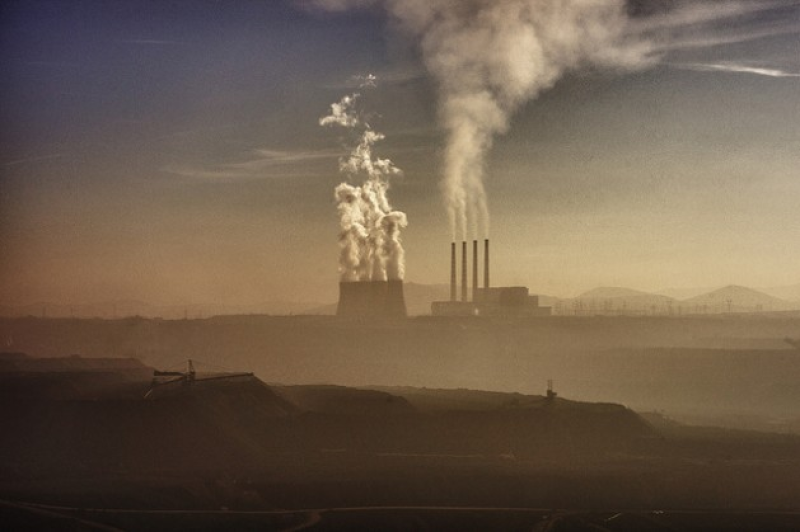- United States and Bangladesh Launch Money Laundering Bench Book |
- 6 BD peacekeepers killed, 8 hurt in attack on Sudan UN Base |
- Burglary at Hadi’s village home in Jhalokathi |
- Martyred Intellectuals Day on Sunday |
- Campaign from Jan to rein in overuse of antibiotics: Adviser |
World Bank Urged to Address Rich Nations’ Emissions

Multilateral development banks are caught in a tricky dynamic: responding to pressures from key shareholders — notably the U.S. — to loosen restrictions on financing for fossil fuels while working to limit greenhouse gas emissions that negatively affect development.
The World Bank and other multilateral development banks (MDBs) have recently begun reconsidering their self-imposed restrictions on financing fossil fuel projects. This shift is being driven in part by the new U.S. administration and is supported by several developing country experts.
However, greenhouse gas (GHG) emissions from fossil fuels—and the resulting climate change—can severely undermine MDB projects and the overall growth prospects of developing countries. Most of these emissions originate from richer, larger economies, not poorer developing ones.
Given the negative effects of such emissions, MDBs need to press richer countries to curb fossil fuel-based GHG emissions, even as they reconsider easing restrictions on fossil fuel lending in poorer nations.
In the past decade, MDBs restricted funding for fossil fuel projects due to concerns about the negative impact of climate change on development, under pressure from the U.S., Europe, and other key stakeholders. Yet, the emissions reductions needed to prevent dangerous levels of climate change must come primarily from the world’s biggest economies—China, the U.S., the European Union, Russia, and Japan—which together account for around 60 percent of global emissions.
The World Bank, for example, announced in 2017 that it would largely stop financing gas drilling and extraction projects, and other MDBs soon followed suit. Critics argue that these restrictions have denied poorer nations important economic opportunities, such as revenue from exports and energy access through gas-powered plants. In contrast, Sub-Saharan Africa and South America together account for just 5 percent of historical global emissions, a trend expected to continue.
The International Energy Agency (IEA) consistently highlights that the burden of reducing emissions must fall on wealthier nations. Although India is among the top emitters, its emissions stem mainly from its large population rather than high per-capita wealth.
These emissions, and the climate change they drive, pose two key risks for MDBs: they undermine the development benefits of MDB projects and create financial risks by weakening the ability of developing countries to repay loans.
The catastrophic 2022 floods in Pakistan—causing more than $30 billion in damages, or nearly 10 percent of GDP—illustrate the devastating economic impact of climate change. Such destruction is impossible to adapt to and must be prevented.
Unfortunately, several factors hinder a full appreciation of climate change’s potential destructiveness. First, uncertainty about the future—the “past is not prologue” phenomenon—leads to underestimation of risks. Second, climate impacts worsen over time, yet markets focus on short-term effects rather than the longer-term economic damage expected in 15–20 years. This is especially relevant for MDBs, whose projects and loans often span decades. Third, climate minimisers exploit uncertainty to downplay the long-term dangers of emissions in favour of short-term fossil fuel gains.
As a result, MDBs face a complex dilemma: responding to pressure from key shareholders, notably the U.S., to loosen fossil fuel financing restrictions while striving to limit emissions that harm development.
Earlier this year, the World Bank president proposed an “all of the above” strategy, including natural gas, nuclear power, and renewable energy projects. Although the proposal was partly welcomed, the World Bank’s board deferred a decision on natural gas in June, approving only nuclear power.
The debate is expected to continue at the World Bank Annual Meetings this October. Yet, the U.S. continues to push MDBs to support more fossil fuel projects.
This discussion, however, obscures a deeper issue: to sustain the long-term development of poorer countries, MDBs must confront the GHG emissions of the world’s wealthiest nations. The destructive impact of climate change on developing economies is too great to ignore.
To mitigate this risk, MDBs should launch an initiative encouraging the largest emitting countries to reduce their emissions — the “Undertaking to Reduce Global Emissions to Support Development” (URGED).
While rich countries are unlikely to be influenced directly through MDB lending policies (since the U.S., EU members, Japan, and increasingly China are not major borrowers), they are key shareholders and hold significant influence through MDB boards and meetings. This provides an opportunity for MDBs to engage them on emissions that threaten global development.
The proposed URGED initiative — focused on analysis, dialogue, and advocacy regarding the developmental impacts of rich-country emissions — could even be introduced at the upcoming World Bank Annual Meetings.
Whether such an initiative can move forward in the current political climate remains uncertain, but that does not diminish its importance.
Philippe Benoit is Managing Director at Global Infrastructure Advisory Services 2050. He previously served as Division Chief at the World Bank and the International Energy Agency, as Director at SG Investment Bank, and as Senior Adjunct Research Scholar at Columbia University’s Center on Global Energy Policy.

